There are many substances, naturally derived and synthetic, that affect the human body in one way or another. Most have a desirable impact or a function for which they might be deemed useful, but almost all will have side effects of some description, by which we mean undesirable or harmful impacts on our behaviour and/or anatomy.
The irony is which of these substances, which we loosely term “drugs” are politically and socially acceptable, and which are deemed to be so unacceptable they must be restricted or banned. Clearly we revere pharmaceuticals that can treat us of illnesses, from cancer drugs down to common or garden paracetamol to block our pain receptors and make us forget for a while that miserable headache, though every drug has undesirable side-effects. We might baulk at the cost of developing them and ensuring their safety, but some drugs have had a profound effect on improving human longevity and better health. Where, for example, would we be without Alexander Fleming discovering and exploiting penicillin?
Naturally there are prescription drugs which can be abused and for which a ready black market exists, from tranquillisers such as valium to various amphetamines and painkillers (my mind immediately flicks to House and his addiction to vicodin.)
Then there are the legal drugs: tobacco and alcohol of course, though there are plenty more addictive drugs, such as caffeine, a stimulant consumed by thousands every day in drug dens we nowadays call coffee shops. Finally there are those classified drugs the government does not want us to use because they are deemed harmful, though in practice this is highly misleading – over-use of any drug causes health issues. Some can and do have medical uses, particularly the opiates, and the same is also true of marijuana for pain relief of chronic conditions, though sufferers are still having to break the law to obtain supplies.
In short, the law is a total ass, riddled with hypocrisy and inconsistencies. If the harmful effects, the risk of over-indulgence and risk of addiction were the criteria selected to ban drugs, then smoking tobacco, drinking alcohol and ingesting caffeine would also be classified drugs. The government claim to be concerned about excess use, but secretly want you to use because of the customs & excise duty they foist upon us. That they do not do the same with coffee is somewhat surprising, viewed in that light – but then the effects of over-use of caffeine are not deemed sufficiently serious to warrant licensing.
Drug classifications are bizarre, to put it mildly, and anyone speaking openly and honestly about them, as did Prof David Nutt, is fired for doing so. Put simply, the government is doing a three wise monkeys impression: it does not want to hear the truth, nor accept publicly that there is any way other than banning, including lowering classifications of certain drugs, which “gives out the wrong signal”.
Why? Clearly legalisation will never be on the political agenda, and to lower classifications suggests tolerance to the use and sale of such drugs. But then legalisation of drugs is deemed to send out the wrong message by appeasing drug pushers and dealers engaged in criminal activities – but much more because it is deemed to be a vote loser. Many issues are too important to be left to politicians, but no politician is sufficiently courageous to tell the truth or to stand out from the crowd. They are all moral cowards who care more about being re-elected, to a man and woman.
Equally, the illegal production and distribution of drugs is only viable because there is a demand, they do make people feel good or would not be used as such, and sale carries a huge markup for those making illegal imports and pushing on to the streets, just as those distilling and running illicit booze made vast profits during prohibition in the States. More than that, criminalising users, especially addicts, serves no purpose whatever – it just drives use underground, reduces the likelihood that users will seek help and treatment, and makes them more likely to commit other criminal acts to fund their habit. If the habit is fuelled by criminal activity, far better to attach the source.
Yes, taken in excess or bought through shady dealers mixed with dangerous and poisonous foreign substances, the drugs they use may ruin their health, wealth and families, though the same is true of alcohol and tobacco – both of which cause or contribute to thousands of deaths annually, not to mention anti-social behaviour. Control the supply and you control the cost, quality and add taxes; ban and you relinquish any pretensions to control, no matter how hard Customs & Excise work to stop the supply. Try to keep ecstasy out of clubs and you will always struggle, no matter what the policy.
With alcohol, the problems include chronic alcoholism and binge drinking, so the remedy is said to be pricing by unit of alcohol, so stronger drinks cost more, and, coincidentally, bring in more tax revenue – but not to further restrict supply to pubs or supermarkets, which would be said to interfere with the market and unfairly constrain the licensed trade. Even unit pricing, critics say, unfairly penalises social drinkers who only want to go out for a chat and a pint. Banning use of tobacco in pubs and other public places to prevent non-smokers inflicting their habit on non-smokers was equally criticised for harming the pub trade, though thankfully pubs are now much more pleasant places to be.
The same might equally be said of light users of ‘recreational drugs’ – that partaking of the occasional spliff in company might do nobody any harm, though partaking in a public environment would be offensive. Even the designer drug of choice among the glitterati, cocaine, can be used with moderation and give no outward signs of injury or illness.
Consistent use over time with any of these substances, and indeed alcohol and tobacco, will inevitably cause damage and behavioural changes, of course. The reasons why people do it are not necessarily through addiction, though clearly people with “addictive” personalities may be more susceptible. In spite of the obviously destructive qualities, the flipside of heroin was portrayed to shockingly good effect in Trainspotting – just as Sinatra’s The Man With The Golden Arm shocked America in the 50s.
Better to avoid any substance that does you harm, but for most light to moderate use won’t kill you and there could be pleasurable effects – so long as you don’t then go on to drive, use heavy machinery or do anything else that endangers life. Hallucinogens may be different, since they alter perception and could cause a “bad trip” at any time – though I can only smile at Loudon Wainwright’s description of taking acid.
For myself, I like a drink occasionally but rarely if ever do I get plastered. I don’t smoke and I don’t do any other substances, though I will admit to being a caffeine junkie. I tried coming off it once, cold turkey. Got a blinding headache and something close to the DTs. Not nice. Maybe it fuels my paranoia and a range of other undesirable effects. I should come off it and find something milder to drink, but can I be bothered? My government are all for telling me not to take other drugs but seemingly they don’t give a toss about this one.

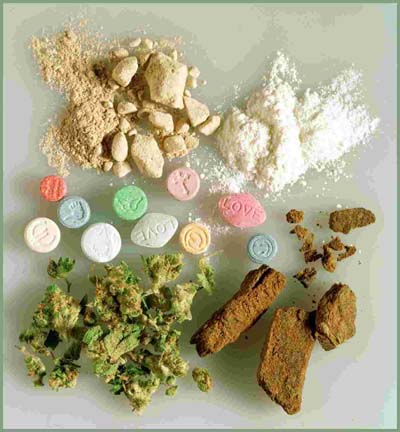
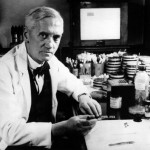
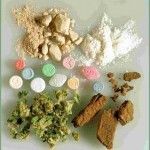
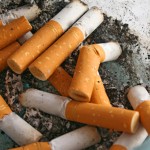
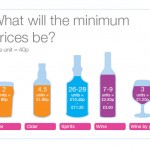
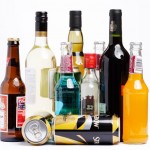


I know lots of ‘social’ drug users but the ones I know who have damaged themselves and their families and friends are all alcoholics – I don’t know the statistics but I’d bet the NHS spends at least 20 times more on alcoholism than it does on any other kind of drug addiction. (Food addiction probably costs more but I won’t count that as a drug!)